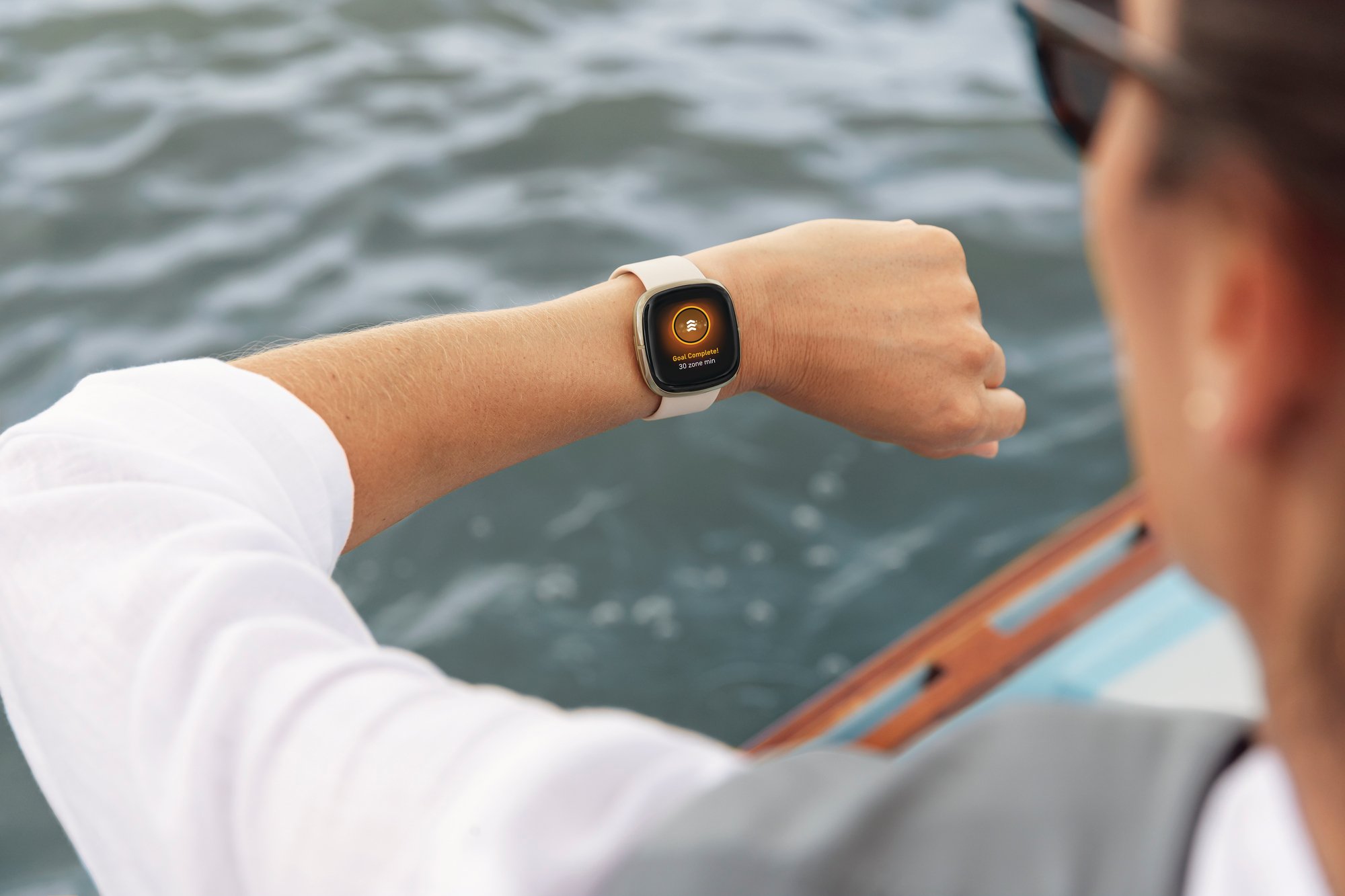Many Fitbit (FIT +0.00%) products in recent years have included a relative SpO2 sensor that can measure blood oxygen levels. That information can be useful in diagnosing certain conditions like sleep apnea, a disorder that affects over 20 million Americans. However, that hardware has mostly remained unused as Fitbit has worked to develop the underlying technology necessary to enable the feature.
At long last, Fitbit is rolling out blood oxygen monitoring using the SpO2 sensor, giving it a rare advantage over Apple (AAPL 3.68%).

Image source: Fitbit.
Fitbit wants FDA clearance to diagnose sleep apnea
The feature is now being deployed to Fitbit's devices that include a SpO2 sensor: the Versa, Ionic, and Charge 3. Blood oxygen saturation data is now available through Fitbit's app and digital health platform, according to Engadget and CNET. Users can see if they are experiencing large variations in blood oxygen levels while they sleep.
Throughout 2019, Fitbit beta-tested a Sleep Score that was designed to encapsulate a user's sleep quality in a single number. The Sleep Score, which recently exited beta, factors in things like sleep duration, sleep quality, and restoration. "For devices with a relative SpO2 sensor like Versa, Ionic, and Charge 3, the program also tests consumer interest in tracking breathing disturbance," CEO James Park said last February. "Underscoring users' interest and engagement in sleep, Sleep Score beta program enrolled approximately 10,000 users in less than two hours of launch."
Displaying blood oxygen data is just the first step. The end goal is to secure Food and Drug Administration clearance for a sleep apnea diagnosis feature. "Fitbit is continuing to collect clinical data to test and develop FDA-cleared features for sleep apnea," a Fitbit spokesperson told Gizmodo. "They expect to submit for FDA clearance soon and are maintaining a dialogue with the FDA throughout this process."
"In terms of the FDA, we're continuing to work with the FDA on a variety of initiatives, including around sleep apnea," Park said on the second-quarter earnings call last summer. The company canceled its third-quarter earnings call due to its pending acquisition by Alphabet subsidiary Google.
Apple will add sleep tracking soon
Sleep tracking is one area where Fitbit has the upper hand versus Apple Watch, which doesn't directly offer sleep-tracking capabilities (third-party apps are available). Apple Watch has inferior battery life compared to Fitbit devices and often needs to be charged at night, and no models of that smartwatch include a SpO2 sensor.
To be clear, the Cupertino tech giant is interested in sleep tracking. In 2017, Apple acquired Beddit, a start-up that makes dedicated sleep-tracking hardware (a $150 sensor strip that lays underneath the sheets in order to track movements). The were rumors the company was going to release sleep-tracking capabilities via an Apple Watch software update last fall, but that never played out.
Sleep tracking will be a key competitive area in smartwatches, as health-oriented features have emerged as one of the most meaningful use cases for the product category. Sooner or later, Apple will add sleep tracking to Apple Watch to neutralize one of Fitbit's few advantages.






